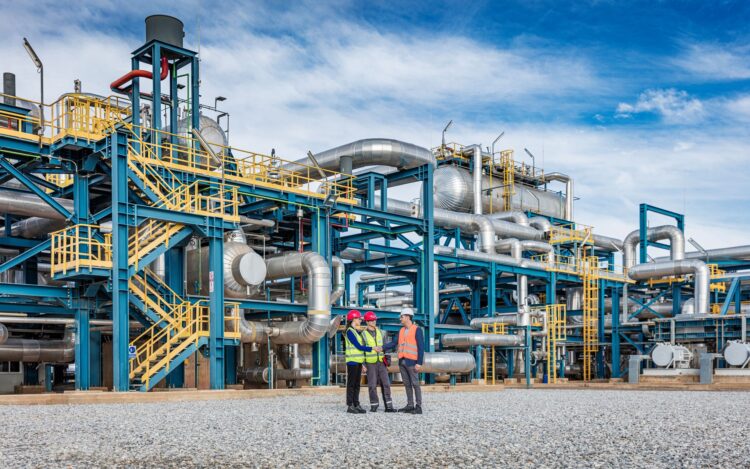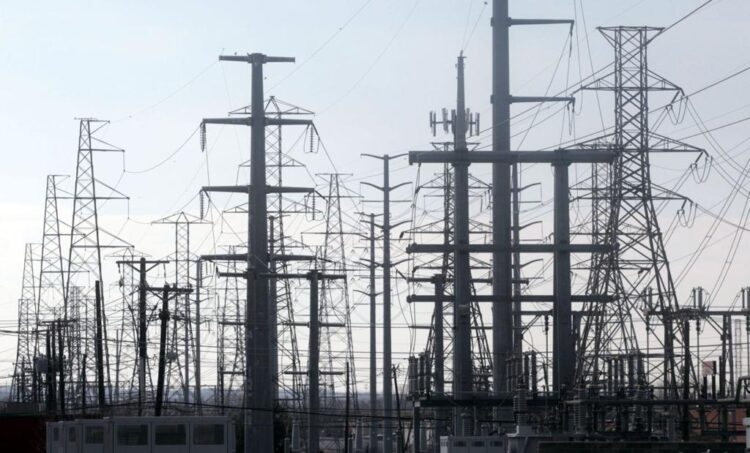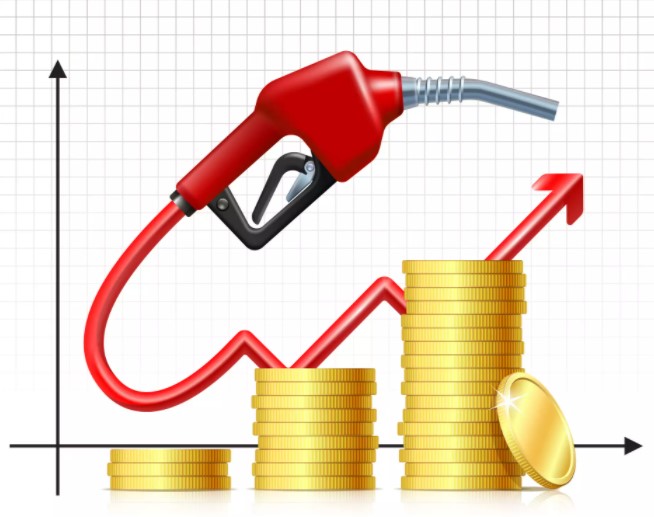Wholesale gas prices are soaring to unprecedented levels. The cost of gas for suppliers has increased by 250% since the start of the year, with a 50% rise just since August, data shows.
Consumers are protected by the energy price cap, which limits what domestic users can be charged for their energy. This has caused several energy firms to go bust as they can’t pass on the increase in wholesale prices to consumers.
Despite calls to abolish the energy price cap, business secretary Kwasi Kwarteng said keeping the cap in place over winter was ‘non-negotiable’.
Businesses, however, have no such protection and the increase in gas prices is causing many issues for both transport and production costs.
The business secretary did not offer any additional support for companies that are struggling, after some company bosses and some Tory MPs called for help from the government to stop industries grinding to a halt.
Why are energy prices rising?

The rise in prices has been put down to a number of factors, including a cold winter earlier this year which left gas stocks depleted, as well as refineries in the US being shut down by Hurricane Ida, according to industry analysts.
High demand for natural gas in China and a decrease in supplies from Russia have also added to the price rise. Russia has denied intentionally limiting supplies for political reasons, but many are questioning this.
This year the UK only sourced a quarter of its requirements from the continental shelf. That means three-quarters of gas demands had to be met by imports, exposing the UK to global energy price swings. The UK would normally generate a substantial portion of its electricity from wind turbines but that has been down this year.
Power supplies have been even more challenged than usual after a blaze at the electricity interconnector at Sellindge shut down the undersea power cable with France. The National Grid has warned it will be at least six months before the connection can be restored, increasing pressure on natural gas supplies needed for generating electricity.
The effect on the industry

The rise in gas wholesale prices has already caused twelve energy firms to go bust. There are fears that more will follow suit unless energy prices come down. These firms going out of business mean less choice in the energy market and therefore higher prices for businesses.
Prolonged periods of rising fuel prices increase the everyday costs of doing business, especially if a company has vendors and suppliers that need to transport goods essential to daily operations. Rising fuel costs will have a knock-on effect throughout the supply chain.
Energy-intensive sectors such as steel, glass, and chemicals have been badly affected by soaring gas and electricity costs. They have warned of further impacts on both industry and consumers, including higher prices of goods and factories being forced to temporarily close.
Trade body UK Steel said it was now “uneconomic” to make steel in the UK, with British firms facing twice the electricity prices paid by competitors in Germany, France, and the Netherlands. British Steel, based in Scunthorpe, has had to shut down for periods and increase its prices by £30 a tonne to recoup higher energy costs, increasing costs for customers.

This will ultimately have an additional impact on all businesses, as the cost of raw materials and packaging increases, narrowing their margins.
Soaring gas prices caused two fertilizer plants to shut down at Billingham on Teesside and Ince in Cheshire, with no date for when production would resume. This has caused a shortage of CO2 which is produced as a by-product and used in food manufacturing and other industries.
Paul Pearcy, the federation coordinator at the trade body British Glass, said window manufacturers could be forced to revert to powering their furnaces with polluting fuels that had been discontinued. “Some of our members still have heavy fuel oil on-site, having moved over to gas,” he said. “Some of them are seriously considering moving back to that because of the price of gas. This doesn’t look good when the UK is hosting the climate change summit COP26.
The effect on small businesses

Small businesses are often badly affected by rising gas and fuel prices. These price rises affect their supply and overhead costs so they have to make decisions that will have an impact on the running of their businesses.
Businesses that are not on fixed rates with their energy companies will suffer significant increases in their rates. The increased cost of these new bills will have a negative impact on the business’s cash flow.
Some will be forced to pass the price rises onto customers, this may affect the demand for their products or services.
Others will choose to absorb the costs, but this will have an impact on their profit margins which may not be sustainable in the longer term.
Many small businesses have already suffered the negative impacts of the Covid 19 pandemic, and are now being met with higher overheads. Many will not be in a secure enough position to absorb these additional costs.
Exhibition stand contractor Quadrant2Design is one such business. They rely on fuel to transport stands and materials across the country to different events. Fuel price hikes have increased their overheads, MD Alan Jenkins said ‘We are managing to absorb the costs for now but if this continues we will be forced to pass it on to customers. If their costs are already increasing this will add costs to the whole supply chain’.
The effect on consumers

Although consumers are protected by the energy price cap, this is to rise by £139 next month which will lead to a rise in energy prices. This rise is widely tipped by experts to be followed by a further heavy increase during the spring next year as wholesale winter month price contracts show no sign of abating.
Consumers may also start to notice an increase in prices generally. Everyday items such as their pint of beer or weekly shop will increase in price as manufacturers pass the costs on.
This will affect inflation, and if wages don’t increase, consumers will feel the pinch.
It is not anticipated that prices will return to the same levels we saw at the start of this year until late 2024.
Conclusion

Rising gas and fuel prices are affecting not only consumers at the pumps but also all areas of supply chains in a variety of industries. Producers are having to pass on the increased costs to their customers which ultimately affects all consumers. Everyday items like food are likely to go up as transport and manufacturing costs rise. Unfortunately, there is no end date in sight, so it is likely to be a tough winter for some.
Author Bio
Written by Caroline Grey, a content writer with a wide variety of experience across a number of different industry sectors.
 Hi Boox Popular Magazine 2024
Hi Boox Popular Magazine 2024



